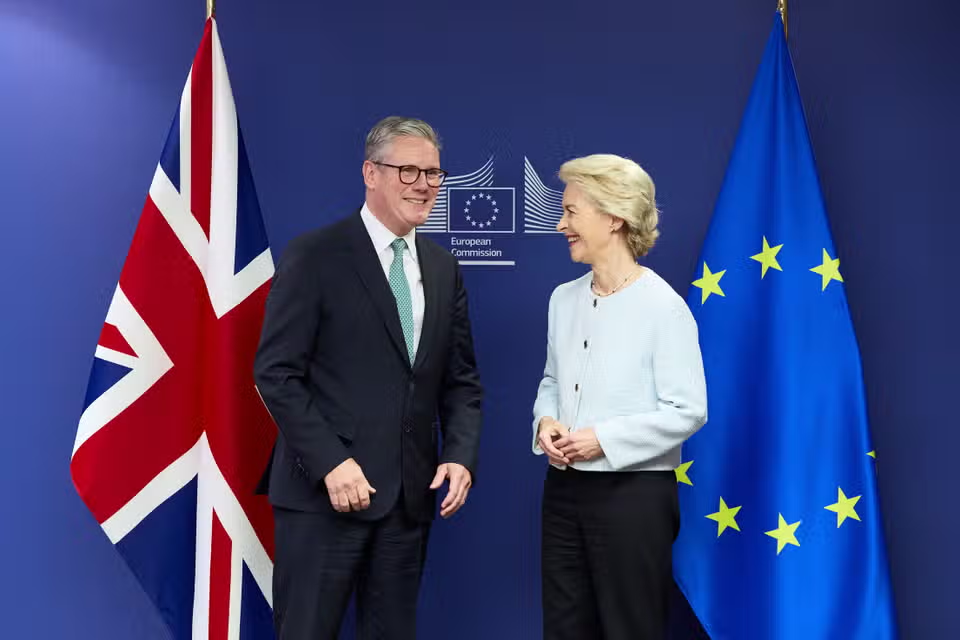A top economic advisor to U.S. President-elect Donald Trump said Britain should focus on trade links with the United States and would gain little from a proper relationship with the European Union. The comments are increasing pressure on the UK to decide which of two different economic routes it would take in a future outside of the EU.
Advisor Urges Deeper US-UK Economic Cooperation
Stephen Moore, one of Trump’s senior advisors on economics, told BBC radio that if Britain were to shed the economic model of the EU, then there would be an excellent chance for the US to agree to a free trade treaty. He described the EU model as a “socialist model,” and he said that the chances of getting a good trade deal with the US would be much higher if America aligned itself with the economic principles of the US.
“The UK is kind of caught in the middle of these two forms of economic model,” Moore said. “I think Britain would be better off moving toward more of the American model of economic freedom. If that were the case, it would spur the Trump administration’s willingness to do the free trade agreement with the UK.”
Bank of England Governor Calls for Closer EU Ties
While Moore is campaigning for a stronger US-UK partnership, Bank of England Governor Andrew Bailey took the opposite stance, calling on Britain’s new Labour government to strengthen its relationship with the European Union. On Thursday, the governor stated his case when he emphasized that close economic ties with the EU are significant due to the substantial trade flows between the UK and the bloc.
In this context, the British government, under Prime Minister Keir Starmer, declared its intention not to join the EU single market or the customs union. However, Starmer reaffirmed his commitment a few times toward improved diplomatic and trading ties with Europe as an equal approach.
Finance Minister for Better EU Relations with US Ties in the Picture
As UK Finance Minister Rachel Reeves said, resetting the relationship between the UK and the EU is essential. At the same event as Bailey, she stressed that maintaining the need to rebuild economic connections with Europe must go hand in hand with optimism about working closely with the incoming Trump administration on trade.
Britain needs to rebalance its relationship with the EU. Still, we want to strengthen trade ties with the United States as well, Reeves added, highlighting a dual strategy that would win access to European markets and create new opportunities on US soil.
Global Consequences of the US Presidential Election on Trade
Bailey avoided any direct reference to the U.S. election in his speech. Still, a worldwide business community is watching very keenly how the Trump victory will unfold given his administration’s evident protectionist tilt. With speculation on massive tariffs that may be imposed on imports to the US, the future trade strategy into the UK has become of much discussion.
It’s a tough call for the United Kingdom to be between two major economic powers with vastly different philosophies towards trade. The campaign promises of Trump also included a much more America-centric approach to trade policy, which promises significant challenges for international partners- Britain included. Thus, the future of British economic alliances is uncertain, potentially between the EU’s fully established regulatory framework and the US’s emphasis on economic liberalism.
More:Israeli Airstrikes in Lebanon Lead to Civilian and Combat Casualties
Balancing Act for Post-Brexit Britain
Britain will need to steer through an act of forging closer ties across the Atlantic with the United States and, simultaneously, achieve a balance and stability with its closest geographical neighbor, the European Union. The strategic decisions taken in the coming months will undoubtedly shape the country’s trade landscape for years to come, determining where it stands in this shifting global economy.
The question of aligning itself with the free-market approach of the US or furthering cooperation with the regulatory framework of the EU shall become the crucial query that British leaders make in a post-Brexit international trading world.















